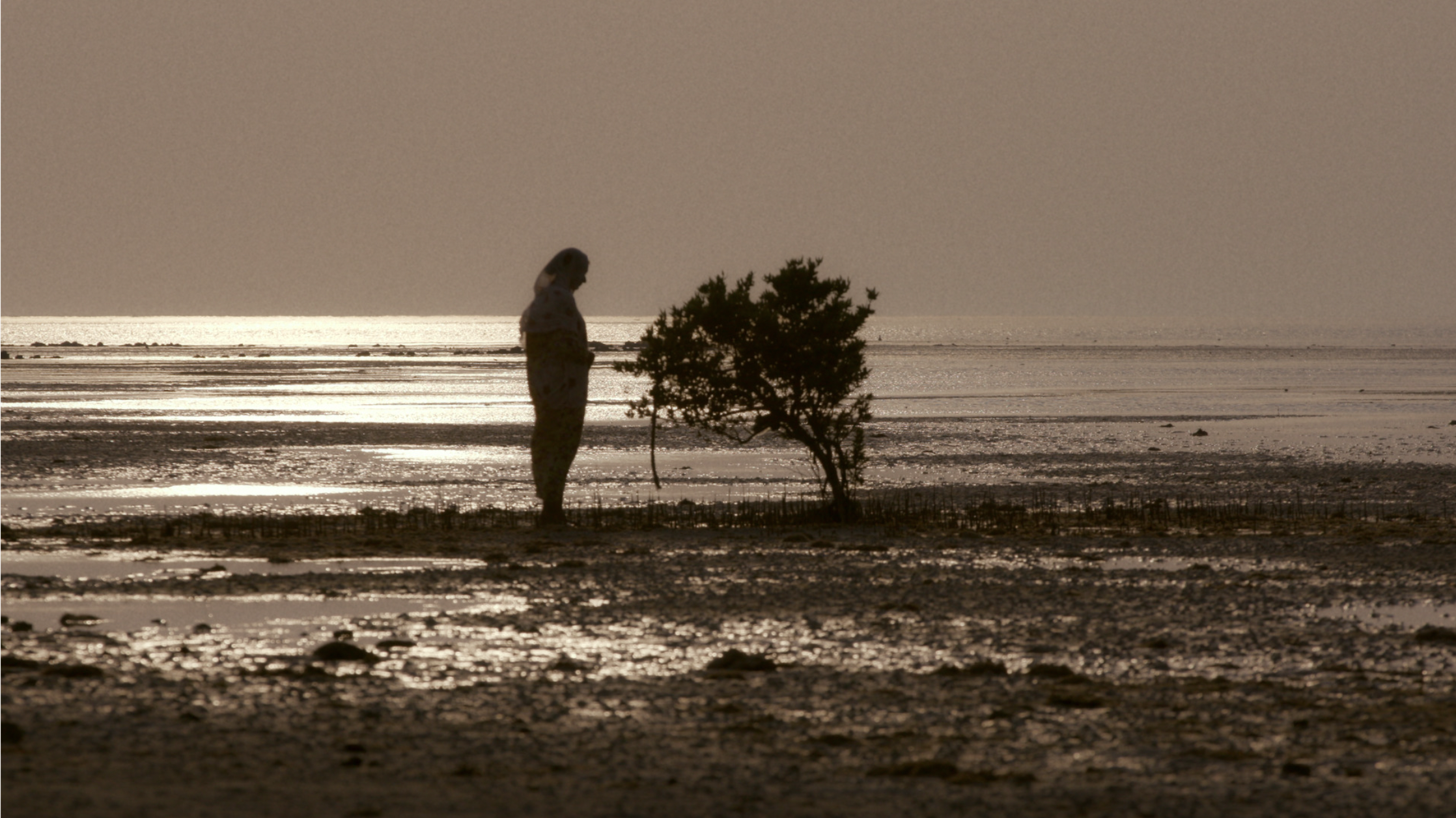Qatari filmmaker Majid Al-Remaihi channels his emotions into visual art, expressing his journey in making sense of his mother’s memory loss.
Majid Al-Remaihi was just 19 years old when his mother was diagnosed with Early-onset Alzheimer’s, a form of the memory-robbing brain condition that appears in people before the age of 65.
The human emotions of loss and grief are faced by many and are often difficult to deal with, particularly when losing something or someone they can still see.
In his case, Al-Remaihi chose to channel his emotions into a form of visual art that expressed his journey in trying to make sense of his mother’s memory loss and dealing with a reality that nothing could change.
“It’s not a loss that made sense or a loss that you can physically let go of. It was a loss that was almost perpetual and fractures the person’s sense of selfhood or being. So there was a kind of journey in the film that I was writing,” said Al-Remaihi.
Al-Remaihi is a Qatari artist, writer, filmmaker, and full-time film programmer based in Doha.
His work closely examines how art may serve as a platform to explore how he personally interacts with “institutionalised living” in the Gulf in the 21st century.
As an expression of grief and family in ‘And Then They Burn the Sea,’ Al-Remaihi laments the experience of seeing his mother gradually lose her memory. Forever.
In early June, what started as a son trying to make sense of a loss transpired to an Oscar qualifying film.
Reconciling with grief
The beginning of the film captures that pain with a simple line:
“Two years have passed since you’d last remembered my name, how can I still be a part of your memory without a name?”
The film highlights the promise of cinema as a medium for memories even when they are at their most irretrievable, by weaving a personal family archive, together with reenacted dreams and rituals.
“The film was definitely part of the grieving process. Making it was almost ritualistic in that it allowed me to make broad sense of the meaning within a loss that is impossible to reconcile with,” the Qatari film-maker told Doha News.
His film ‘And Then They Burn The Sea’ bagged the main prize in the Fiction and Documentary International Competition at the Vienna Shorts Film Festival. It also qualified for the European Film Award and Austrian Film Award among others.
“I do think it’s nearly impossible to casually engage in the sense of hollowness that the illness brings to people closest to the person, and much of that grief and mourning trickled down into so many parts of my life, that it also became as equally impossible to ignore and not confront in a way.”
His videos frequently mimic the format of a documentary, as he experiments with the genre to analyse how the functioning of a cultural or educational institution can either measure or heal a body depending on its state of conflict.
“I’ve been carefully studying and watching films that are born out of political engagement, thinking about what happens in the world, because when you’re working through film, you’re also aware that you’re dealing with subjects and these subjects are born out of certain conditions.”
Processing and film-making
Every filmmaker has a filmmaking process. In Al-Remaihi’s case, he meditates on what he finds to be both personal, but also complicated. Questions he asked himself again and again were “what is the notion of familiarity at home? What comprises of the domestic space? What is the relationship between a son and a mother, between the past and the present?”
“It’s a very personal project that if anything, I think there was always some part of me that didn’t want to even show it. I did not want to submit it to any festival.”
The film showcased a part of Al-Remaihi’s history and psyche, and showing it meant that he was opening up certain parts of him to complete strangers around the world.
When he was writing the script, he viewed himself from a third person perspective.
At some point, the Qatari filmmaker did not want to continue filming.
“I think if I didn’t have that emotional support, I would’ve been just as frozen as I was two or three years ago,” said Al-Remaihi.
His hesitance was met with persistence from his team, who wanted to ensure that he took the journey to the end.
“I think a big question for me was do I wait a decade to be able to process these emotions or do I do it now? It felt very much like the sense of urgency was dealing with what that loss entailed beyond just losing the mother, it was like losing a sense of this sort of complex relationship to my home, to the place that I’m from.”
Future plans
The Qatari film scene has witnessed a stark growth in recent years.
When asked what kind of change he’d like to see, Al-Remaihi told Doha News that he, “would like to see more films that come from more authentic places, and from places that are challenging on both personal and social levels, within the sphere of the society we live in.”
“I think I would hope for the Qatari scene to grow into that space of having a cinema that also changes the way we see ourselves.”
In the future, the young filmmaker plans on directing a feature film, but is currently working on another short film, albeit fiction this time around.
“What I can say, it’s kind of a speculative film about the sea, almost like a conversation with the sea.”
The film is still in its early stages, and according to Al-Remaihi’s timeline, it is expected to be completed by early next year.







